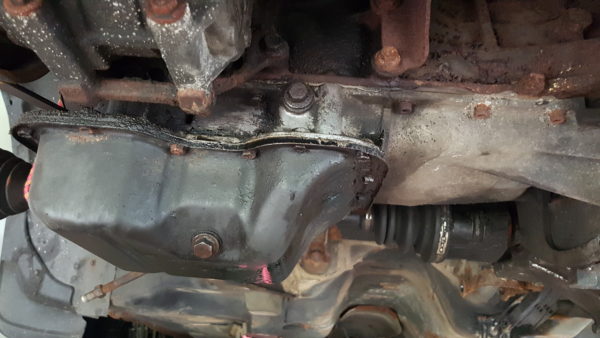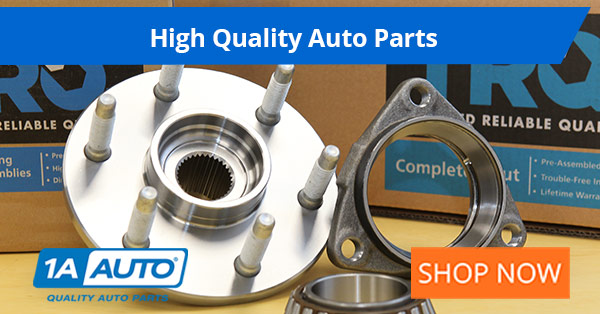How Often Should You Change Your Oil?
How often should oil be changed? When it comes to modern engines, for some, changing the oil every 3,000 miles rule is not much of a debate. According to one of our experts, “Oil and engines have come a long way, and the theory of a 3k oil change is long gone.”
After asking some of our experts if car owners should stick to changing their oil every 3,000 miles, the answer is likely no, especially if the manufacturer recommends differently and if the vehicle is newer and uses synthetic oil, but it also depends on the following conditions:
- Vehicle/Engine Age, Condition, and Type (e.g. oil consumption rate; often carries heavy loads)
- Driving Conditions (e.g. city vs. highway; warmer environments)
- Driving Style and Frequency (e.g. high RPMs; average mileage)
- Type of Oil (i.e. synthetic vs. conventional)
- Manufacturer’s Recommendations
These factors, along with what you would like to achieve (like making your car last for over 300,000 miles), all influence the answer to the question, “How often should I change my oil?”

Where to Begin
As one of our experts says, for starters, check the owner’s manual:
“If someone asked me when they think they should change their oil on a vehicle that is less than 20 years old, I would tell them to consult their manual and follow the manufacturer’s oil interval.”
This, at the very least, gives a good interval to be aware of, formulated specifically for your vehicle’s original and specific engine.
Know Your Driving Conditions, Style, and Frequency
Depending on how you drive, where you drive, and how often you drive, the oil change interval number can change. Two of our experts recommend reducing your oil change interval number if you experience a lot of stop-and-go traffic (especially in the city), or live in a warmer environment year-round.
“The only variable I throw in the mix is people that do excessive city driving outside the norm. The varying RPM and load range can put excess stress and heat on oil and break it down faster. Anyone in a major city setting (Boston, NYC, etc.) and rarely sees highway should reduce their interval by 20-30%; however, still following the [oil] weight and a quality filter, and this is also my opinion.”
“Varied use of the vehicle can warrant sooner change in interval. Lots of stop and go plus hot climates can break down oil faster.”
If you have a vehicle that sits off the road more often than not, it’s still important to be mindful of its last oil change.
“Vehicles that sit unused for longer periods of time can cause moisture and acid to form in the oil, so these should be changed more often.”
Of course, what’s also important is changing it consistently.
“I maintain a 2000 Ford Ranger 3.0L V6 Automatic. That truck has 177k miles on it; however, it gets driven very little. And when I say very little, I mean 2-3,000 miles/year at most. It is a spare vehicle only used for hauling, or in case someone needs a temporary car. That engine doesn’t leak oil and doesn’t burn any, so I don’t go by mileage, but rather by time. I do an oil change every spring on it, with 5w-30 high mileage synthetic blend. That oil is good enough for a year and very, very few miles.”
“I do not suggest everyone follow the same oil change interval. We must consider the age and type of vehicle, type of oil used, the environment where it is driven, and the manner in which the vehicle is driven. I do recommend that oil change intervals are followed consistently though.”
Be Aware of Your Oil Consumption
According to one of our mechanics, some manufacturer's engines burn on average a quart of oil every 1,000 miles, but this number can vary depending on the make and model.
“The majority of cars that I did oil changes to held 8 quarts of oil, and 3 quarts frequently came out at the manual-recommended oil change interval. The manufacturer of this particular car claimed that it was “normal” for these types of engines to burn 1 quart of oil every 1,000 miles. Nice! So even if you did a 5,000-mile oil change, you’d likely only have 3 quarts left.”
This is, of course, if you don’t check your oil very often, as one of our mechanics points out.
“The tolerances in newer engines, mostly between the pistons and cylinder walls are a few thousandths wider. This helps reduce friction and increase MPG. The down side is some increased oil consumption. A ½ quart to 1 quart of oil consumption per 1,000 miles is pretty average… A lot of cars hold around 4-5 quarts of oil. If you’re driving to 5-7,000 or 10,000 miles between oil changes, it’s possible you could run the engine out of oil, causing severe damage, which is worse than having some dirty oil.”
As stated above, the problem is oil consumption. So, even with advances in synthetic oil, oil condition sensors, and higher oil change intervals—such as 5,000, 7,000, or 10,000 miles—becoming more common, it is still important to be checking your oil level regularly. Here is an example of how neglecting to check your oil level, especially for higher oil intervals, can cause severe engine damage:
“When you are super low on oil, (like, ohhhh I dunno, maybe half the amount that [it] should have), your main bearings get lubed first, and everything else is secondary. Low on oil equals ‘sorry camshafts, no oil for you today… or tomorrow… or ever.’ Then your VVT doesn’t work, sets a check engine light, and stresses you the heck out. Shortly after this oil starvation, the engine begins to eat itself.”
Of course, as the engine ages, you’ll want to be more mindful of its oil-consumption rate.
“I subscribe to the thought of following the manufacturer’s recommendation for newer cars [and] then increase the frequency as the car ages or driving conditions become more extreme. For older/higher mileage vehicles, it is important to frequently check oil level and condition.”
Overall Consensus: How Often Do I Need an Oil Change?
As a general rule of thumb, our experts recommend that you follow the recommended intervals unless one of the conditions above calls for a change in the interval, that changing at 5,000 miles and sometimes more on modern cars is common, and that you should check your oil regularly, change it consistently, and always use the right fluids.
One of our mechanics suggests changing every 3,000-3,500 miles if you’d rather not check your oil regularly.

“If you don’t want to check your oil regularly, 3,000-3,500 miles is a good rule. If you want to stretch out those oil change intervals, you will have to keep track of the oil level and top off as needed between changes because the car will consume oil.”
But, especially with newer cars (~20 years or younger), if you regularly check your oil, changing oil every 5,000 miles is common.
“So, [for] most modern vehicles, I would say 5,000-mile intervals would be fine, and is a safe bet regardless of what the owner’s manual says. 3,000 was more of a rule of thumb back 20-30 years ago, when oil, filters, and the engines themselves weren’t what they are today.”
“Pretty much all newer cars use synthetic blends that can easily be changed every 5,000. However, even if you can change the oil at 5,000 miles, you should be checking the level around 3,000, as synthetic oils tend to burn easier.”
“I normally perform an oil change on my 370z and my daily driver every 5,000 miles. Initially with my Z, I did oil changes at every 3,000 miles, but found that the oil always had some life left in it. Now, at about 3,000 miles, I will top off the oil, then at 5,000, it’s due for an oil and filter change. My ‘01 Focus doesn’t burn through oil nearly as fast, so that just gets the oil and filter change every 5,000.”
Some of our experts believe there are benefits to changing oil every 3,000 miles, and on older cars, recommend it for longevity. It’s also recommended by a couple of our experts for non-synthetic oil (especially, as noted above, if you do not check it regularly, your engine is older, or you add up miles frequently).
“This answer really depends on the vehicle and type of oil. Conventional oil (example is 5W-30) should be changed roughly every 3,000 miles. But there are now synthetic oils (example OW-20) that go up to 5,000. In my Subaru, I do every 5,000 (it uses synthetic OW-20), but my truck, that uses 5W-30, did 3,000.”
“You’d be amazed at how clean the insides of my engines become once they are in the long term 3,000-mile oil change routine. I currently have a 2000 Galant that I have driven for ~50K miles, and at 3,000 miles, the oil comes out almost as clean as it went in. Maybe I’m changing it too early then? Well, I have owned 20-plus cars, and as if by magic, they have all been amazingly reliable—even the DSM’s (Eclipses, Talons, Lasers)!”
“Some people would rather spend the extra money on oil and change it every 3,000 miles (even in a new car), but that won’t necessarily yield better results than if they wait until 6,000 or 7,000 miles [if recommended by manufacturer], for example. But in other cases, especially with older vehicles that have seen several hundreds of thousands of miles, 3,000-mile intervals are probably a better idea, since the oil change itself won’t be that expensive anyway. It will keep the engine in a much better shape.”
Do an Oil Change Yourself
And, of course, the biggest benefit can come from doing an oil change yourself. It will help you be more attentive to your car’s specific needs. It will also allow you to inspect and get familiar with other car parts and potential future problems your car could have, and most importantly, can help you save money in the long run. One of our mechanics just recommends that you stick with quality materials. Buy your quality oil related parts online.
“Choosing the right oil for your vehicle is important. As timing systems and other major engine components run off of oil, it’s important the oil is able to move quickly/in the way the engine was designed to. Oil types have a different construction on the molecular level and a quality filter ensures clean oil.”
Learn to change the oil yourself with the help of 1A Auto's how-to videos. There’re plenty of instructional videos for several years, makes, and models in the 1A Auto Video Library that can teach you to change your own oil. Learn what tools you’ll need and how easy it can be. You may also see what other repairs we have for your car or truck that maybe you didn’t know you could do.

